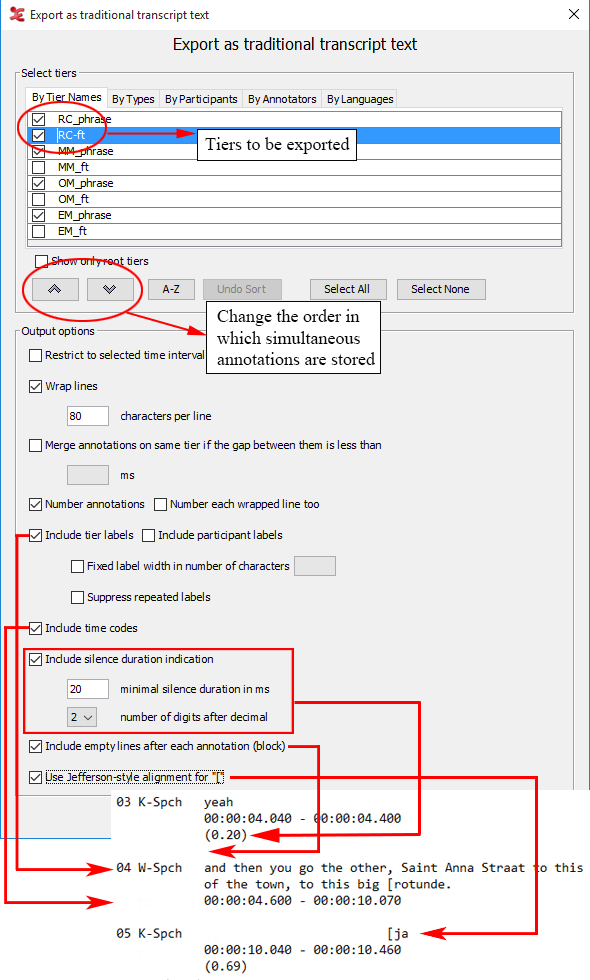Traditional transcript files
In some situations a straight-forward list of the annotation units, one after another, can be handy. For that cause an export option to a “traditional transcript text” has been added to ELAN. In its simplest form it just will create a text file containing the successive annotations of several tiers, in chronological order. This feature can be found under .
Figure 45. Export Transcript Text
 |
"Restrict to the selected time interval' allows you to export only the data that is currently selected. (see the section called “Making a selection on an independent tier”).
'Wrap lines' sets a maximum number of characters before the line gets wrapped.
'Merge annotations on the same tier...' makes it possible to merge annotations on the same tier if the gap in between these annotations is less than a certain amount of milliseconds.
You can number the annotations, each wrapped line, and include or exclude tier labels or participant labels in the export.
One of the options enables you to include silences with a minimal duration. The figure shows there is a silence of 0.2 seconds between 'yeah' on the tier K-Spch and 'and then you go the other ...' on the tier W-Spch. The first annotation ends at 00:00:04.400 seconds and the next annotation begins at 00:00:04.600 seconds, resulting in a silence of 0.2 seconds. If this silence was shorter than the minimal silence duration entered in the export dialog window (20 ms in the figure), the silence will not be included in the exported file. The silence duration indication can have 1, 2 or 3 numbers of digits after the decimal.
Empty lines after each annotation (block) can also be included or excluded in the generated output file. Lastly, you can set a fixed width (in number of characters) for the tier labels.
The option to use Jefferson-style alignment based on "[" characters in overlapping annotations, can change the position of parts of annotations by vertically aligning corresponding "[" characters. (Alignment of matching "]" characters is not supported yet.)